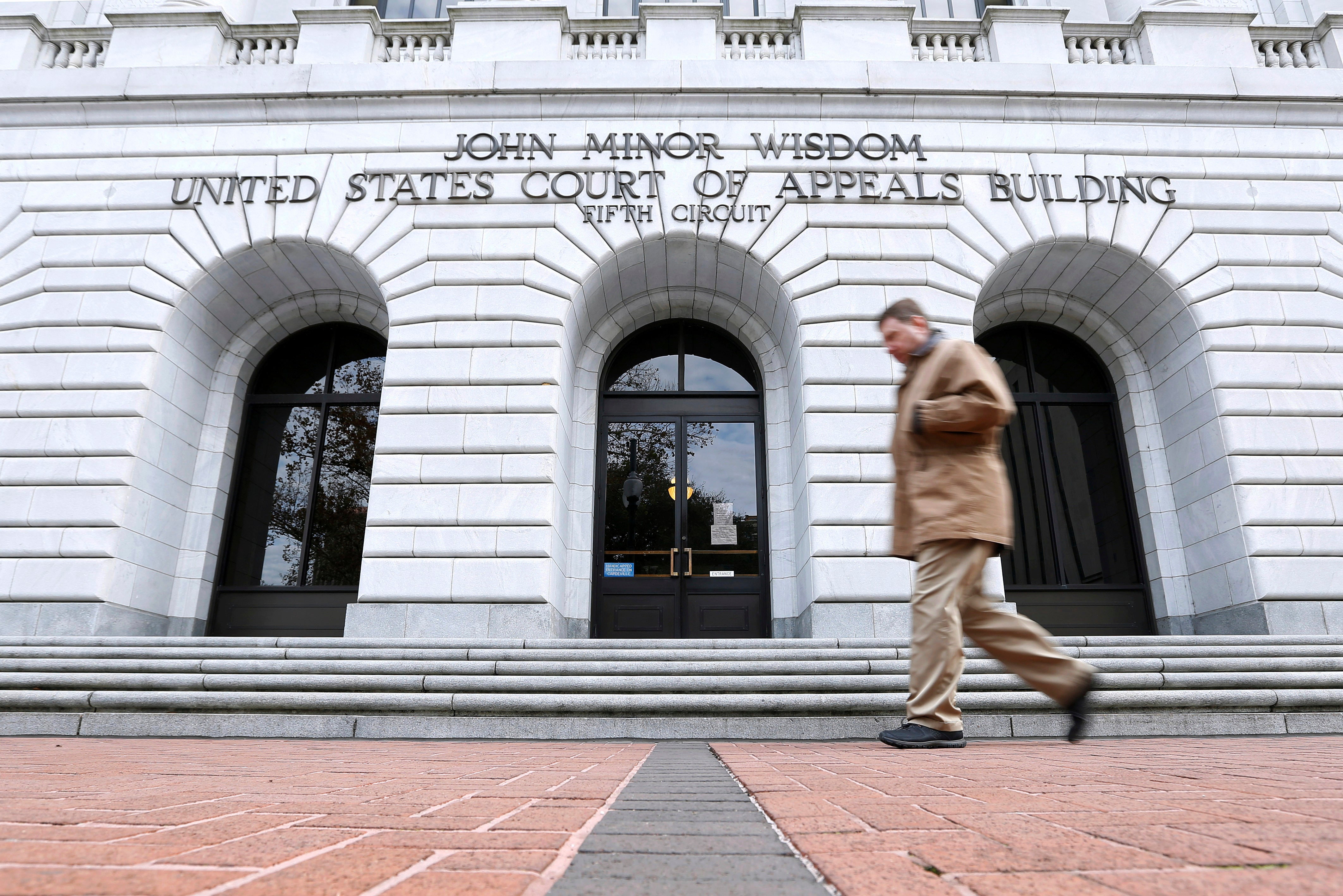Appeals court revisits Texas ban on abortion procedure
Attorneys for the state of Texas have returned to a federal appeals court to argue that the state should be able to ban a common second-trimester abortion procedure

Your support helps us to tell the story
From reproductive rights to climate change to Big Tech, The Independent is on the ground when the story is developing. Whether it's investigating the financials of Elon Musk's pro-Trump PAC or producing our latest documentary, 'The A Word', which shines a light on the American women fighting for reproductive rights, we know how important it is to parse out the facts from the messaging.
At such a critical moment in US history, we need reporters on the ground. Your donation allows us to keep sending journalists to speak to both sides of the story.
The Independent is trusted by Americans across the entire political spectrum. And unlike many other quality news outlets, we choose not to lock Americans out of our reporting and analysis with paywalls. We believe quality journalism should be available to everyone, paid for by those who can afford it.
Your support makes all the difference.Texas should be allowed to halt a common second-trimester abortion procedure, the state's lawyers told a federal appeals court Thursday in a hearing punctuated by debates over fetal pain and the rights of women to medically safe abortion.
A 2017 Texas law, which has never been enforced, prohibits the use of forceps to remove a fetus from the womb — what supporters of the law call a “dismemberment abortion” — without first using an injected drug or a suction procedure to ensure the fetus is dead.
The state has long argued that it has a legal interest in barring what it calls a “brutal” procedure. Abortion rights advocates argue that the law effectively outlaws what is often the safest method of abortion for women in the second trimester of pregnancy — a procedure medically known as dilation and evacuation. They also argue that fetuses cannot feel pain during the gestation period affected by the law, and that one alternative outlined by the state, the use of suction to remove a fetus, also results in dismemberment.
A three-judge panel of the 5th U.S. Circuit Court of Appeals in New Orleans blocked enforcement of the law last year, and other federal courts have blocked similar laws. But opponents of legal abortion hope the Supreme Court, now with three appointees of former President Donald Trump, will take a new look at the issue.
Against that backdrop, a majority of the full 17-member 5th Circuit agreed to Thursday’s full-court rehearing, which featured sometimes sharp discussions on whether a fetus can feel pain.
Kyle Hawkins of the Texas Attorney General’s Office argued that fetuses in the second trimester are “pain capable.” He said the law does not pose an unconstitutional burden on a woman seeking an abortion and that the state has a legitimate interest in requiring a “more humane” abortion method.
“Even in high school, if you’re going to dissect a frog, you kill him before you start taking him apart,” Judge Edith Jones said later as she questioned Molly Duane, attorney for the Center for Reproductive rights.
“First of all,” Duane responded, “the record clearly shows that fetal pain is not possible at the gestational ages —”
“Well, we don’t know about frog pain, do we?” Jones interrupted. “It’s a matter of taking creatures and not tearing them apart limb by limb.”
In briefs, the center cites findings by the American Medical Association, the Royal College of Obstetricians and Gynecologists and other medical organizations that pain cannot be felt before 24 weeks of gestation.
The Texas law can cause needless delay for a woman seeking abortion and the requirements are medically unnecessary, Duane argued. Also, Duane argued, a physician cannot be certain of fetal death in many cases until a procedure has begun, raising questions among 5th Circuit judges Thursday of whether the physician performing the abortion with forceps becomes liable for prosecution if the drug has not worked.
Hawkins said the physician in that circumstance has options including a second injection.
In 2019, the U.S. Supreme Court declined to hear arguments over a decision blocking a similar Alabama law. But abortion opponents have read another opinion from Chief Justice John Roberts in a separate abortion regulation case as indicating that states have greater leeway to regulate abortion.
Since then, conservative Justice Amy Coney Barrett has also joined the Supreme Court, boosting abortion opponents’ hopes that the nation’s highest court may be open to new restrictions on the procedure.